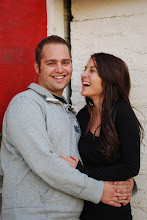Well there is a lot of good that comes from simply asking the students what they like and how they learn. The surveys found on pages 100-103 I liked for different reasons. The first one I like because it is simple and quick for those students who have a hard time focusing on these types of tasks. However, I don't think it goes into as much detail as I would like. If I were taking the survey I would want to explain my answer and why one of the statements kind of sounds like me, rather than saying it is or it is not. There's no place for explanations. If I were to give my students this survey I would tweak it a little so they have a place to explain their answers. However, if I'm just looking for a quick idea on my students' personalities then this would work well as it is.
The second survey goes into more detail about the student. I think this can give me more incite on my students' interests and personalities. This is more time consuming for both me and my students, but it goes more into depth and gives a more accurate representation of the student. For younger grades I would probably want to give some examples for some of the questions. They may be too broad for some students to really be able to think of an answer. Like the question, "What are some ways of learning that work for you?" By the question I could write some examples like memorization, visual aids (pictures, objects), writing/taking notes, repeating information, making up songs/poems, reading, etc.
By having my students fill these surveys out I can gather information about how my students learn, their background, and what motivates them. With that information I can then adapt my lessons to fit their needs and personalities. If I utilize the information I will be able to create lessons and assessments that are more meaningful, and where every student has an opportunity to learn and understand what I am teaching. That's my goal in teaching! I want all my students to have the opportunity to succeed, so why wouldn't I adapt my lessons to fit their needs.
What are some relationships you see between this variety of inventory types, and what we are beginning to learn about differentiating content, or process, or product for readiness, or learning profile, or interest?
I loved all these inventories and I'm so glad to now have examples of them! A lot of these inventories are good for students to reflect on how they feel about assignments, how they do them, and if there is anything they can work on. I think it would be very interesting to have my students take a few of these surveys at the beginning of the year and then again at the end, and even perhaps in the middle of the school year just so not only I can see their progress but they will see it as well.
I can use the information provided by these surveys in many other ways such as:
- planning my lessons-discover their learning styles, what areas they are struggling in, what points they have already mastered and I just need to do a brief review.
- creating tests or other forms of assessments-Some students do poorly on written tests even if they know the answers. I can find other ways to test my students' knowledge. My assessments should correlate with my lessons. Students should know what I will be testing them on. I can first use what I find from surveys to discover what they don't already know to create an assessment, and then create a unit from my assessment.
- designing homework assignments-do my students need assignments that are more interactive, less time-consuming or a little bit easier because they don't have help from home.
- placing children in groups-If I notice that several students are missing something, I can create a lesson or unit for the whole class on that issue. If there are a few students who have similar results I'll break them into groups and provide activities for those different groups centered on what they need further instruction.
Not only can I group students by abilities or needs, I can also group them by interests and common learning styles. Pairing students that struggle in a certain area with others who have mastered the concept, may be good too. Perhaps the student who has mastered the concept can explain it to the struggling student in a different way that makes more sense than I explain in class. - self reflection- A couple of the inventories would be good for students to have easy access to so they can make personal checks as they are reading or writing to make sure they are making the most of the experience.
There are several ways I can use the surveys provided in my classroom. Surveys are a valuable way to learn quickly how I can adapt and create the best possible curriculum for my students. I am so excited to have so many now that I use in my future classroom.

